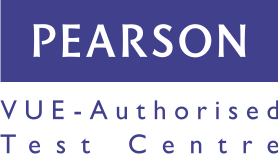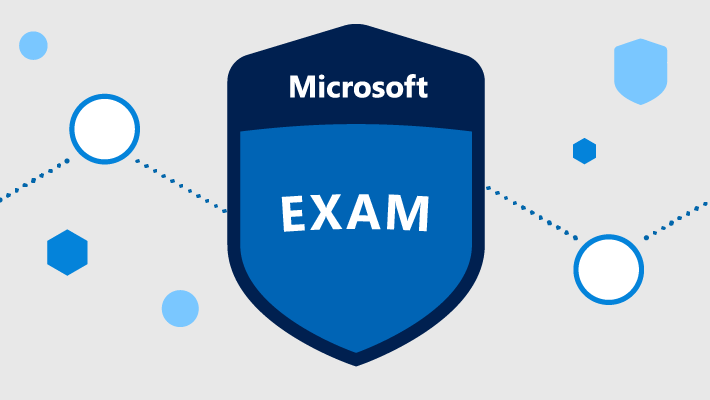O tym kursie
This course teaches Solutions Architects how to translate business requirements into secure, scalable, and reliable solutions. Lessons include design considerations related to logging, cost analysis, authentication and authorization, governance, security, storage, high availability, and migration. This role requires decisions in multiple areas that affect an overall design solution.
Profil odbiorcy
This course is for IT Professionals with expertise in designing and implementing solutions running on Microsoft Azure. They should have broad knowledge of IT operations, including networking, virtualization, identity, security, business continuity, disaster recovery, data platform, budgeting, and governance. Azure Solution Architects use the Azure Portal and as they become more adept they use the Command Line Interface. Candidates must have expert-level skills in Azure administration and have experience with Azure development processes and DevOps processes.
Czego się nauczysz?
In this module, you will learn about the appropriate compute technologies, including virtual machines, App Services, Service Fabric, Azure Functions, Windows Virtual Desktop, and containers.
Lessons
Lab : Implementing Containers on Azure
After completing this module, students will be able to:
In this module, you will learn about solutions for network addressing and name resolution, network provisioning, and network security.
Lessons
After completing this module, students will be able to:
In this module, you will learn about recommend a solution for migrating applications and VMs and a solution for migration of databases.
Lessons
After completing this module, students will be able to:
In this module, you will learn how to provide Identities to services and understand the hierarchy of Management Groups and Subscriptions.
Lessons
After completing this module, students will be able to:
In this module, you will learn apply an Azure Policy, Identify non-compliant resources, and manage tag governance with Azure Policy.
Lessons
After completing this module, students will be able to:
In this module, you will be able to recommend the appropriate data store and recommend Azure SQL Database and Azure SQL Managed Instance Service tiers.
Lessons
After completing this module, students will be able to:
In this module, you will learn about recommend a design a strategy for using tiered storage and manage tiered Storage using Azure tools.
Lessons
After completing this module, students will be able to:
In this module, you will learn about data flows using Azure Data Factory and Azure Synapse Analytics architecture.
Lessons
After completing this module, students will be able to:
In this module, you will learn about Azure Monitor, Azure Application Insights, and Azure Sentinel. You will be able to monitor Azure Resources with Azure Monitor and collect and analyze resource Logs for Azure.using Azure tools.
Lessons
After completing this module, students will be able to:
In this module, you will learn about solutions for site recovery capacity and site failover and failback. You will be able to recommend solutions for recovery in different regions.
Lessons
After completing this module, students will be able to:
In this module, you will learn about solutions for application and workload redundancy, including compute, database, and storage.
Lessons
After completing this module, students will be able to:
In this module, you will learn how to optimize costs from recommendations, breakdown costs by Azure Service, and download and review usage details. 01-View
Lessons
After completing this module, students will be able to:
In this module, you will learn about solution for deployment of applications including ARM templates, Logic Apps, or Azure Functions. You will also learn about microservices architecture including Event Grid, Event Hubs, Service Bus, Storage Queues, Logic Apps, Azure Functions, and webhooks.
Lessons
Lab : Implement Azure Logic Apps Integration with Azure Event Grid
After completing this module, students will understand :
In this module, you will learn about solution for deployment of applications including ARM templates, Logic Apps, or Azure Functions. You will also learn about microservices architecture including Event Grid, Event Hubs, Service Bus, Storage Queues, Logic Apps, Azure Functions, and webhooks.
Lessons
After completing this module, students will be able to:
Successful Azure Architects begin this role with experience on operating systems, virtualization, cloud infrastructure, storage structures, networking, applications and databases.
Firma jest Autoryzowanym Ośrodkiem Szkoleniowym MICROSOFT Silver Learning
Możesz u nas podejść do egzaminu Pearson VUE
Spółka posiada wpis do ewidencji placówek niepublicznych Nr ew. ES.VIII.4320-6/p.n./2003 wydany z upoważnienia Prezydenta Miasta Łodzi


Zachęcamy do skorzystania z możliwości dofinansowania szkoleń oferowanych przez naszą firmę. Dostępne rozwiązania:
Skontaktuj się z nami, aby uzyskać więcej informacji. Oferujemy pełne wsparcie w tym procesie.
Zapraszamy!
|
|
|
Przewidziany egzamin do szkolenia: AZ-304
Zapisz się na egzamin już dzisiaj! Kontakt do Centrum Egzaminacyjnego: it@ntg.pl tel: 502 147 093 lub zapisz się przy pomocy formularza.


Najbliższy termin: Prosimy o kontakt
Najbliższy termin: Prosimy o kontakt
Najbliższy termin: Prosimy o kontakt
Najbliższy termin: Prosimy o kontakt
Najbliższy termin: Prosimy o kontakt
Najbliższy termin: Prosimy o kontakt
Najbliższy termin: Prosimy o kontakt
Najbliższy termin: Prosimy o kontakt
Najbliższy termin: 04-08-2025 09:00
Najbliższy termin: Prosimy o kontakt
Najbliższy termin: 17-07-2025 09:00
Najbliższy termin: 04-09-2025 09:00
